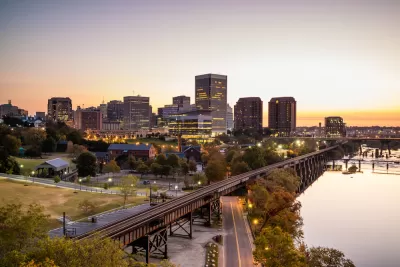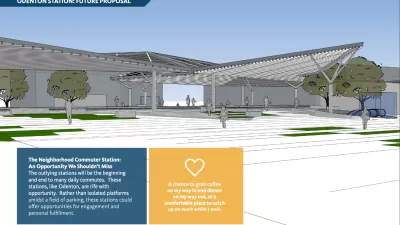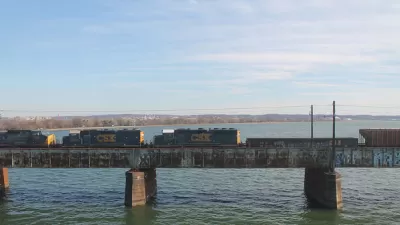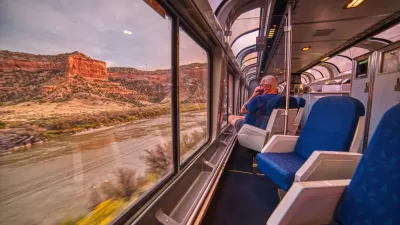Expanding rail service to more communities in Maryland and D.C. could enhance the benefits of Virginia's recent investments in intercity rail.

On the heels of Virginia's significant investments in intercity rail, a business community think tank calls for a "regional rail vision" that includes Maryland and the District of Columbia that would connect the entire region and maximize the benefits of Virginia's work on rail connectivity, writes Wyatt Gordon in the Virginia Mercury.
The goal is a regional rail service that lets commuters travel directly to D.C. and Baltimore from as far south as Richmond without changing trains, which Representative Don Beyer of Alexandria hopes will translate into a "big increase in ridership." Expanded rail service could "translate into big bucks for households and government coffers across the region." Increased connectivity could yield significant economic benefits for the region and boost access to affordable housing, evening out the pressure of the region's high cost of living. "If convenient commutes become a truly regional commodity, home prices closer to the Capitol may also slow their rapid staggering ascent."
"What we’re trying to do is to create more amenable communities to live or create jobs in throughout our region out of places that today are largely inaccessible unless you drive a car like Fredericksburg or Frederick, Maryland," Greater Washington Partnership's vice president of transportation, Joe McAndrew, told the Virginia Mercury. A major challenge for the regional vision is working across jurisdictions. "We are a complicated region with a lot of different governance structures and don’t always get along," Virginia Passenger Rail Authority board member Sharon Bulova said, "but we are able to come together and get things done."
FULL STORY: Regional rail vision aims to stitch Virginia, Maryland and D.C. closer together

Maui's Vacation Rental Debate Turns Ugly
Verbal attacks, misinformation campaigns and fistfights plague a high-stakes debate to convert thousands of vacation rentals into long-term housing.

Planetizen Federal Action Tracker
A weekly monitor of how Trump’s orders and actions are impacting planners and planning in America.

In Urban Planning, AI Prompting Could be the New Design Thinking
Creativity has long been key to great urban design. What if we see AI as our new creative partner?

King County Supportive Housing Program Offers Hope for Unhoused Residents
The county is taking a ‘Housing First’ approach that prioritizes getting people into housing, then offering wraparound supportive services.

Researchers Use AI to Get Clearer Picture of US Housing
Analysts are using artificial intelligence to supercharge their research by allowing them to comb through data faster. Though these AI tools can be error prone, they save time and housing researchers are optimistic about the future.

Making Shared Micromobility More Inclusive
Cities and shared mobility system operators can do more to include people with disabilities in planning and operations, per a new report.
Urban Design for Planners 1: Software Tools
This six-course series explores essential urban design concepts using open source software and equips planners with the tools they need to participate fully in the urban design process.
Planning for Universal Design
Learn the tools for implementing Universal Design in planning regulations.
planning NEXT
Appalachian Highlands Housing Partners
Mpact (founded as Rail~Volution)
City of Camden Redevelopment Agency
City of Astoria
City of Portland
City of Laramie





























